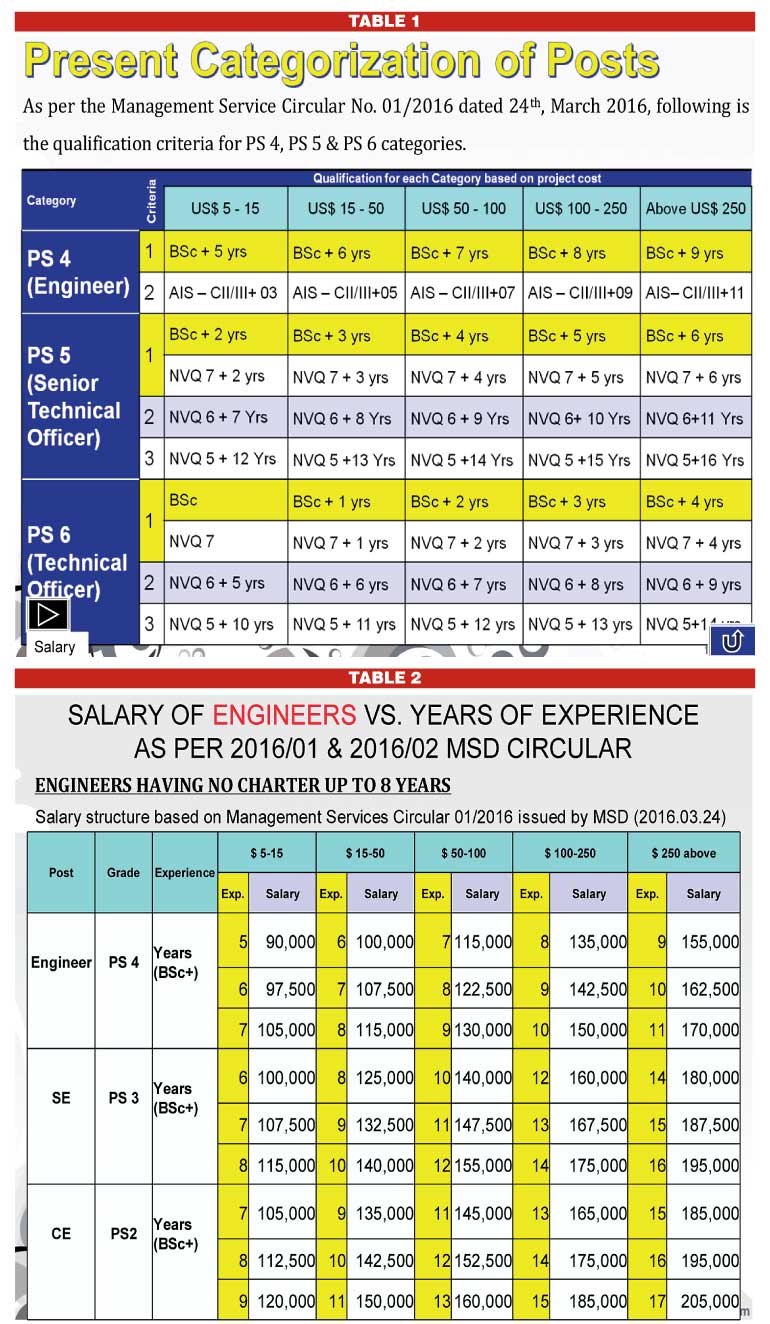Thursday Feb 19, 2026
Thursday Feb 19, 2026
Monday, 22 January 2018 00:01 - - {{hitsCtrl.values.hits}}
By The Institution of Engineers, Sri Lanka
The Government in 2000, in order to ensure the implementation of projects critical to the welfare of the people in an efficient and timely manner, conceived establishing Project Management Units (PMU’s). Using Project Management, a concept that has had much acceptance, especially in complex engineering projects but with wider applicability towards successful implementation of any scope of work, the Government no doubt thought that it was the panacea for all ills in the management of public projects.
A circular was thus issued for procedural and implementation guidelines for the establishment of PMU’s to line ministries and provincial councils by the Management Services Department (MSD) which come under the Ministry of Finance. As time went by the original year 2000 Management Service Circular MSD 10 was replaced by Management Service Circular No. 33 and subsequently in 2016 by MSD 2016/01.
The latest Management Service Circular came into effect in March 2016 which, among other features, specifies and stresses the number of years of experience required for important cadre positions and also links the salary scales to number of years of experience as well as project values as shown in the tables 1.
Perhaps included as a kneejerk reaction to avoid political meddling in recruitment, the measures are proving to be a management quagmire for project directors who are tasked with the actual implementation of projects. The policy change effectively shuts down the gate for employment of junior engineers and junior technical officers, as it has specified a minimum of five years’ experience.
Experience has shown the difficulty of recruiting important staff with several years’ experience and services of very capable junior engineers and junior diplomates have been hitherto used for filling the gaps in most engineering projects which are very crucial.
There is no significant relationship between project value and the salary and qualifications of Engineers and Engineering Assistants whereas the qualification criteria in MSD Circular 2016/01 are completely based on the project cost. Considering the nature of the project and complexity of the project, the Project Director and project entity should be allowed to decide on required staff and their qualifications.
Furthermore, the policy change leads to inconsistencies in salary scales among projects of different values, making it difficult to retain staff in public projects as the table below shows.

An engineer recruited for a project of a lower value would be always on the lookout for openings in the higher value projects as they are offering higher salaries for the same number of years of experience. Thus, medium- and long-term projects could be susceptible to high employee turnover rates. See Table 2
The fact that the effects of such issues arising from the 2016 March MSD circular have started to appear only now is understandable since the repercussions are beginning to be felt increasingly with staff turnovers.
On the other hand, the policy change would result in no opportunities for raw graduates and diplomates being absorbed into development projects of our very own country. It is depriving fresh graduates and diplomates of passing out of our universities and higher education institutions, of vital exposure to major development projects in our own country and compelling them instead to obtain foreign employment to gain exposure.
This is counterproductive to the country’s overall policy of reducing the brain drain the country has suffered and promoting the return to the country of the skills and competencies it has lost.
That solutions have to be found at the early stages considering the nature of these issues to aggravate with time and turn into a gridlock for the management of projects is obvious. Plan, Do, Check, Action (PDCA) is necessary and now it is urgently needed to review the circular again with actual implementers. It is especially so since the Government is laying the foundation to put the country in the high per capita income bracket by 2025 and the flow of Foreign Direct Investments through projects is greatly depended on.
The IESL Policy Forum highlighted this urgency. Forum members suggested more conducive amendments to the circular and it was decided to meet the Government officials including relevant subject ministers.
Government agencies have awarded various contracts to international contractors costing billions of rupees. In the absence of proper PMU, the consequences are delays of projects, additional costs for variations, social unrest, social impacts, environmental issues, quality issues and finally failure to deliver intended benefits in a timely manner for achieving the economic development objectives of these high value projects.
(These salient points emerged at a recently held discussion at the Institution of Engineers, Sri Lanka (IESL) Policy Forum with project directors who are members of the institution. The principal forum is to discuss infrastructure policies and industrial policies of the Government in connection with the economic development of Sri Lanka. IESL is the apex professional body for engineers in the country).